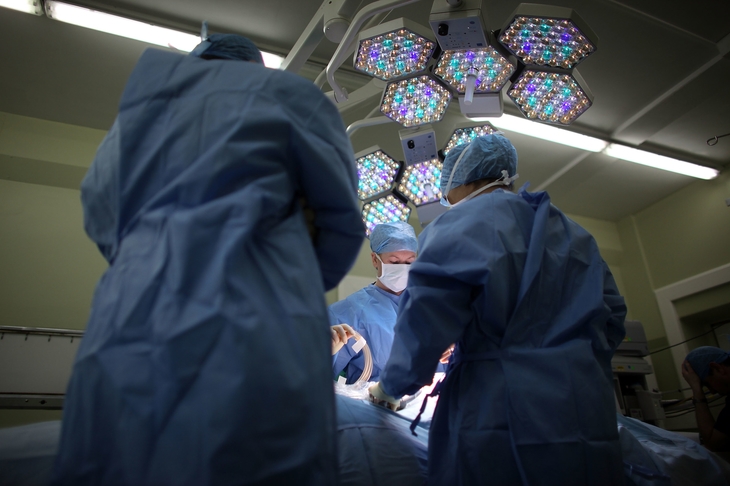The Supreme Court ruling yesterday that a man in a vegetative state could have his feeding and hydration tubes removed so as to bring about his death was, obviously, redundant in his case. The man concerned, a banker in his fifties, is already dead – having earlier suffered a heart attack which left him brain damaged – but the wheels of justice ground inexorably on anyway. But the striking thing about the ruling, delivered by Lady Black, that food and hydration can be withdrawn from a patient in a persistent vegetative state, PVS, without the consent of the Court of Protection, is that we have absolutely no idea how many people it could apply to in the future. Could be 3,000 at any one time; could be more. We just don’t know.
The other aspect is that PVS isn’t an unambiguous thing, like being pregnant; in a very few cases, people recover and the diagnosis isn’t always absolute. Before giving out carte blanche to medics to withdraw life sustaining food and drink from a patient, it would be rather a good thing, don’t you think, to ensure we know who might actually be affected?
Baroness (Ilora) Finlay, the palliative care specialist, wants a proper register of people who are presumed to be in a vegetative state before we start down the route of withdrawing sustenance from them on the say-so of a medic. And not just that, but an explanation of how the diagnosis was made, on what criteria and what external reviews were in place to corroborate the diagnosis. She certainly wants to make sure that an entire team makes a decision about whether to withdraw sustenance – not just one clinician, but a team including a specialist neurologist and palliative care specialist, who would make a full report to a watchdog, including the length of time the vegetative state lasted, and what treatment was given. And if just one of them feels uneasy about the decision to bring about the patient’s death, well, the Court of Protection should make the decision instead. Every decision should be externally reviewed. She doesn’t just want a PVS register; she wants it audited, and the results submitted annually to parliament.
Obviously, this is very much a modern world problem, let alone a first world one. People like the unfortunate banker would, a couple of generations ago, have perished rather quickly, because we weren’t able to deliver nutrition directly into the stomach. But now that we have that capacity to do that, there should, I reckon, be rather a high bar to withdrawing it. The glib lawyer’s formula that it may be in the patient’s “best interest” to die is an odd one; what we are actually talking about isn’t unendurable suffering – that’s not what’s at stake here – so much as the burden to the family and the health service of sustaining life. And respect for individual human life should be the ruling principle.
The case recalls the unfortunate Tony Bland, the boy who was left in a PVS in the Hillsborough disaster; it was a groundbreaking decision to withdraw his food and hydration and to leave him to die. But it was also a problem of medics’ making. Patients like him would often die normally from infections if not treated with antibiotics; it’s not quibbling here to suggest that in some cases, nature should be left to take its course rather than to take the drastic step of withdrawing sustenance from a patient who can’t communicate.
At the very least we should adopt Baroness Finlay’s suggestion of a register of PVS patients, and keep hawk like scrutiny of the way those patients are treated. The Court of Protection is still needed; not perhaps to authorise every decision to withdraw sustenance, but to ensure these decisions aren’t taken lightly.







Comments